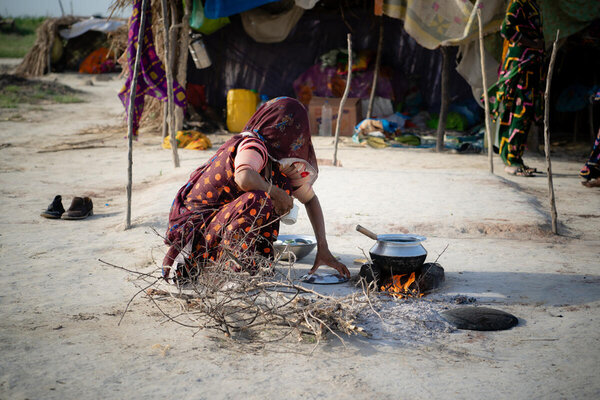WFP steps up relief and recovery assistance for communities affected by devastating floods in Pakistan

Already, WFP has reached more than 400,000 people with food assistance in Balochistan, Khyber Pakhtunkhwa and Sindh provinces and continues to expand its operations in support of the Government-led response across the country. A record 33 million people are affected by the floods, the deadliest in more than a decade.
“The people of Pakistan not only need immediate assistance but also longer-term support to restore their livelihoods shattered by the floods,” said Rathi Palakrishnan, officer-in-charge and Deputy Country Director, WFP Pakistan. “WFP stands with them – under the leadership of the Government – to help them get through this calamity and build their resilience against future shocks. The world needs to wake up to the reality of the climate crisis.”
More than 630,000 people are still in relief camps, over 80 percent of them in Sindh alone. In Balochistan and Sindh, large areas of land remain inundated, and scores of communities are cut off, creating challenges for humanitarian agencies to deliver aid. There has also been an outbreak of waterborne diseases among the displaced families.
In addition to food distributions, WFP is providing specialized, nutritious food for 31,000 young children and 28,000 pregnant and breastfeeding women to prevent malnutrition and boost their immunity. WFP is also reinforcing the government’s logistical capacity to ensure no disruptions to humanitarian supply chains.
Once the initial relief response is concluded, WFP will immediately implement recovery programmes to improve community infrastructure, create livelihoods opportunities and boost resilience, combined with cash-based transfers, through early 2023.
In Pakistan, WFP works closely with the government to strengthen livelihoods and help communities build their resilience to climatic shocks. This includes support to create irrigation channels and dams in drought and flood-prone areas, vocational training and income-generating activities. These help both men and women diversify their livelihood sources. Community members receive food assistance while participating in the activities, and their communities benefit from improved infrastructure that boosts resilience and food security in the long-term.
The significant scaling-up requires US$152 million, up from the originally planned $34 million, as part of the flash appeal launched by the United Nations in August.
Note to the editor
Click here for photos and here for video footage.
# # #
The United Nations World Food Programme is the world’s largest humanitarian organization, saving lives in emergencies and using food assistance to build a pathway to peace, stability and prosperity for people recovering from conflict, disasters and the impact of climate change.
Follow us on Facebook, Instagram and Twitter: @WFPPakistan
Topics
Pakistan Emergencies Food securityContact
For more information, please contact:
Henriette Bjorge, WFP/ Islamabad,
Tel. +92 3012533988
Kun Li, WFP/Bangkok,
Tel. +66 84 5558994
Isheeta Sumra, WFP/ Rome,
Mob. +39 3471814398
Tomson Phiri, WFP/ Geneva,
Mob. +41 79 842 8057
Nina Valente, WFP/ London,
Mob. +44 (0)796 8008 474
Martin Rentsch, WFP/Berlin,
Mob +49 160 99 26 17 30
Shaza Moghraby, WFP/New York,
Mob. + 1 929 289 9867
Steve Taravella, WFP/ Washington,
Mob. +1 202 770 5993
